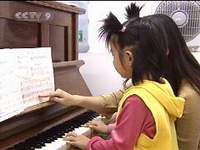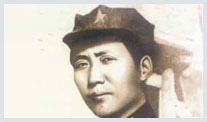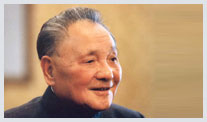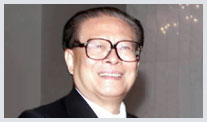|
Chinese families spend heavily on children's education 
|
| 2002-10-21 10:08:28 |
Chinese parents have traditionally held high aspirations for their children. With China's economy enjoying rapid growth over the past two decades, the path towards realizing their hopes is increasingly leading to education. Today, most parents hold nothing back in investing in their children's educative formation.
 With his fingers dancing on the keyboard, this 9-year-old boy Cui Haofu is totally lost in the music. However, he is not a professional player. Accompanied by his mother, he comes here every weekend to learn the piano, which has become an important part of his life over the last three years.
With his fingers dancing on the keyboard, this 9-year-old boy Cui Haofu is totally lost in the music. However, he is not a professional player. Accompanied by his mother, he comes here every weekend to learn the piano, which has become an important part of his life over the last three years.
Li Tianshu, Cui Haofu's mother, said: "Our son's education accounts for about one third or even more of our total income, but I feel it's worth it, especially as he is at a critical stage in his development. What he learns now will benefit him throughout his whole life."
Thanks to a high-demand for piano-learning in recent years, Baohuiqiao Piano City in the northern part of Beijing, is enjoying a booming business. From admitting only about 10 students eight years ago, it now receives over 500 students a week and numbers are still rising. The boom experienced by Baohuiqiao Piano City is indicative of how parents are trying to broaden their children's formation with extra-curricular classes.
 It is a deep-rooted tradition for most Chinese parents to hold high hopes for their children, but the path towards realizing these hopes has become more diversified and expensive. A recent survey shows that more than 60 percent of Chinese families spend one-third of their income on their children's education.
It is a deep-rooted tradition for most Chinese parents to hold high hopes for their children, but the path towards realizing these hopes has become more diversified and expensive. A recent survey shows that more than 60 percent of Chinese families spend one-third of their income on their children's education.
Wo Jianzhong, Professor of Beijing Normal University, said: "I think the major reason for such high expenditure on education is that people began to realize that we are living in an era dominated by a knowledge-based economy. Only when children are well-educated can they have more opportunities to survive in this competitive society."
But as for the children themselves, how do they feel when their timetable is tightly scheduled by all kinds of extra-curricular studies?
Cui Haofu said: "I want to go out, and I want to play football with my classmates."
 Indeed, these extra courses occupy a big portion of children's after-school life. In many cases, it means sacrificing a carefree childhood and embarking on a path of endless learning. But does this type of force-fed education really pay off? Professor Wo Jianzhong says that a rational and scientific approach must be given to children's education for it to be effective.
Indeed, these extra courses occupy a big portion of children's after-school life. In many cases, it means sacrificing a carefree childhood and embarking on a path of endless learning. But does this type of force-fed education really pay off? Professor Wo Jianzhong says that a rational and scientific approach must be given to children's education for it to be effective.
Professor Wo said: "The best way to educate children is to let them develop according to their own interests and personalities. Meanwhile, we should always bear in mind that heavy financial investment doesn't necessarily mean a good education."
Nonetheless, compared with just a few years ago, more and more Chinese parents are in a better financial position to invest in their children's future, pumping money into the hope that they will lead prosperous and happy lives.
|
|










